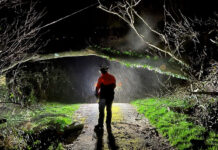Academics from Swansea University are part of an international study exploring the impact of Covid-19 governmental responses on vulnerable groups.
COVINFORM is one of 23 new research projects funded by the European Commission with a total of €128 million to address the continuing coronavirus pandemic and its effects.
Professor Sergei Shubin, director of the University’s Centre of Migration Policy Research, and his colleagues Louise Condon, professor of nursing, and Dr Diana Beljaars, from the College of Science, are part of COVINFORM, a three-year EU project with 16 partner organisations from 11 countries.
Since it first emerged in December 2019, Covid-19 has had an unprecedented global social, behavioural and economic impact. Its consequences go far beyond physical health and have influenced everyday life and wellbeing, mental health, education, employment, and political stability.
COVINFORM was set up to analyse the way leaders and communities across the world have responded to Covid, with a particular focus on how the most vulnerable in society have been affected.
Among those disproportionally hit are health workers, risk groups, older people, children and migrants.
Professor Shubin said: “Our objective is to understand the effect of public health and governmental responses on Covid-19 on vulnerable and marginalised populations, and explore different dimensions of vulnerability emerging during the pandemic.
“Policymakers and public health experts unanimously recognise the disproportionate impact it has had on these groups. Even in countries with well-developed responses, the outbreak and its repercussions imperil the well-being of social groups whose livelihoods are already precarious.”
The researchers say the need for effective communication during the pandemic has been heightened by the vast amount of false information and conspiracy theories circulating online.
Professor Condon added: “False information can circulate quickly within communities and via social media- leading to a lack of trust in ‘official’ government messages and advice from health professionals.“
Swansea University is the sole Wales representative in the collaboration which sees experts from a variety of organisations sharing their knowledge to provide a multi-disciplinary approach to the issue.
Other partners include universities, practitioners and research organisations as well as representatives from industry. They come from Austria, Belgium, Germany, Greece, Ireland, Israel, Italy, Portugal, Romania, Spain and Sweden.
The project draws upon intersectionality theory and complex systems analysis of responses at government, public health and community level as well as information and communications. Promising practices will be evaluated through case studies spanning diverse disciplines and vulnerable populations.
COVINFORM’S aims include:
- improving the resilience, wellbeing and mental health of the population, frontline workers and vulnerable groups and mitigate health inequalities during and after pandemics;
- contributing to a better understanding of the impact, effectiveness, the public health preparedness and responses that have been taken;
- preparing holistic assessments of the social, economic and political impacts of the outbreak and its responses;
- increasing holistic public health preparedness and response in the context of ongoing and future epidemics; and,
- equipping health authorities with guidance for further public health interventions.
The project will also provide guidance and recommendations for more inclusive policies that consider the needs of different groups as well as giving a voice to members of vulnerable groups.
The partners will also create a Covid-19 Knowledge Repository, bringing together civil protection and disaster management experts and organisations, integrating Covid expertise and resources.
Find out more about the COVINFORM project
Help keep news FREE for our readers
Supporting your local community newspaper/online news outlet is crucial now more than ever. If you believe in independent journalism, then consider making a valuable contribution by making a one-time or monthly donation. We operate in rural areas where providing unbiased news can be challenging. Read More About Supporting The West Wales Chronicle


























